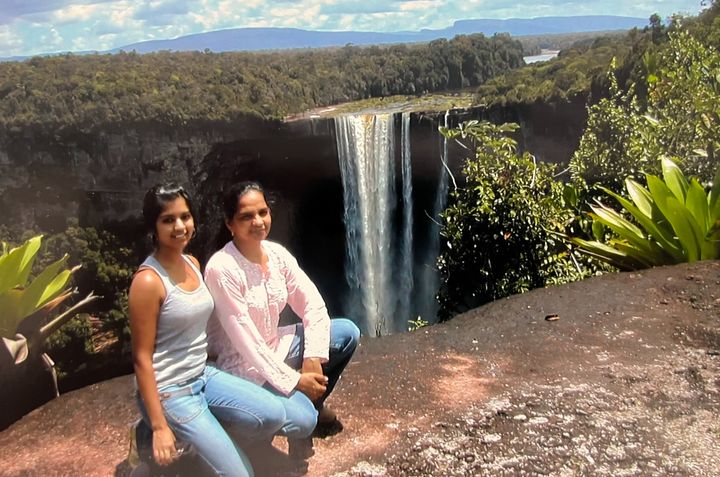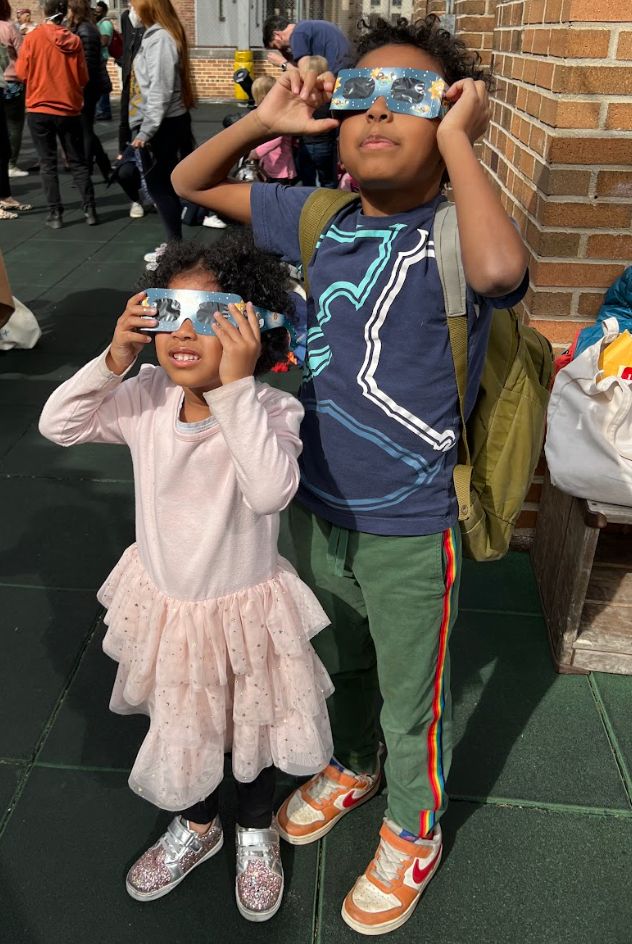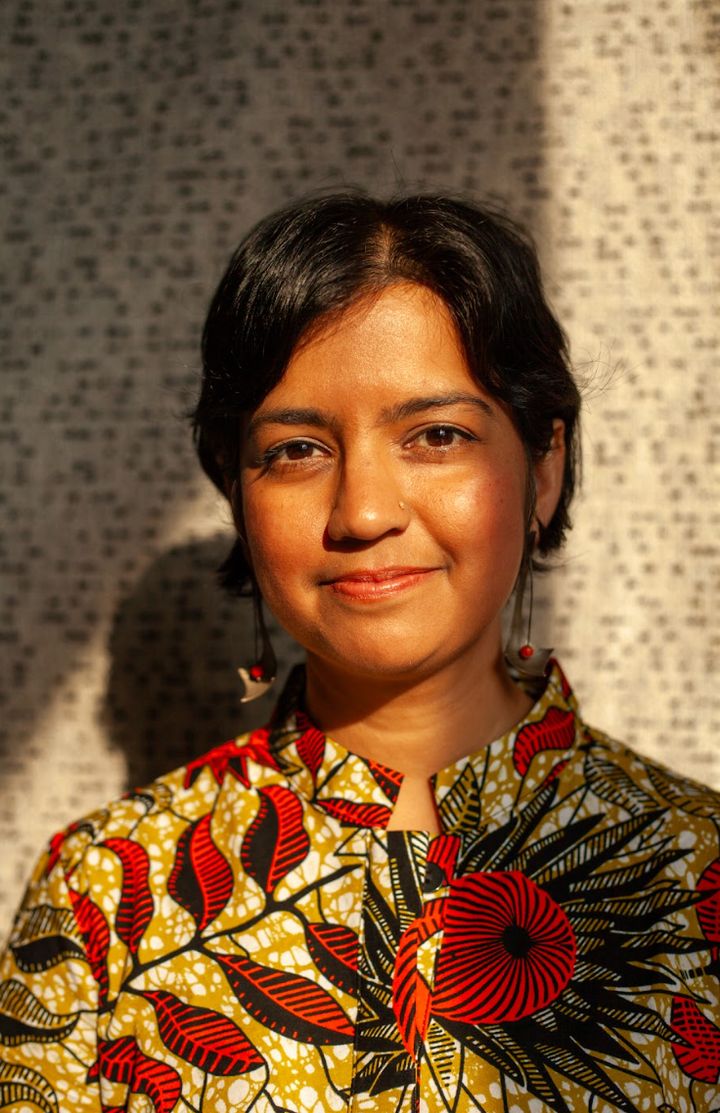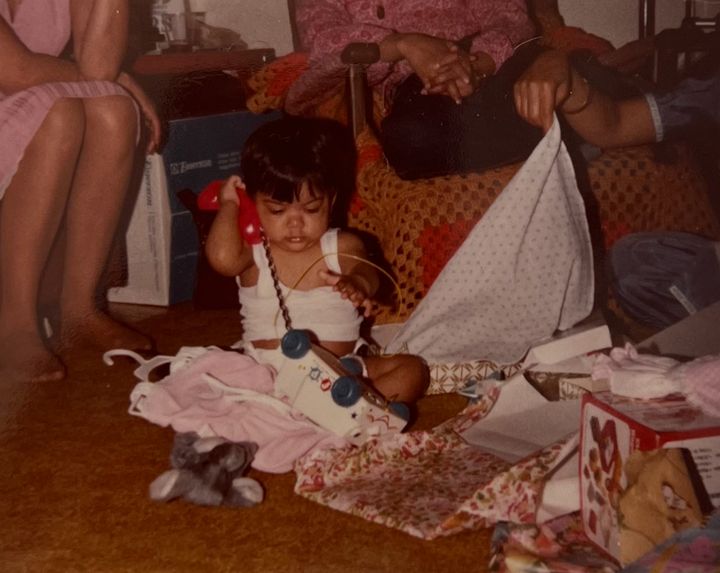News
I Felt Disconnected From The Election. Then Kamala Harris Entered The Race — And Part Of My Brain Woke Up.
In the summer of 2020, during Kamala Harris’ run alongside Joe Biden for the White House, I read an article about how her family in India “helped shape her values.” As I learned about her seaside walks with her grandfather in Chennai and her doting aunties, I couldn’t help but feel a little jealous.
As a displaced child of the motherland several generations removed, there was no one I could call to break a coconut on my behalf, as Harris’ aunt once did for good luck before a California attorney general election. Now that she is officially running for president, her Indian relatives are no doubt breaking every coconut in sight.
However, despite Harris’ clear connection to the subcontinent, not all South Asians have been willing to claim her.
“Her name is Kamala, but she’s not really Indian,” a friend told me with a slight sneer.
The expression was a look I knew well. I had received it myself countless times from other South Asians when they found out I was not “really” Indian. Though you can’t tell at first glance, my family is from the former British colony of Guyana in South America. In the 1830s, after the abolition of African slavery, my ancestors were brought across the ocean to work as indentured laborers. Generations later, my parents left Guyana for North America, where we were constantly asked the question, “Where are you from?” Or, as the kids on the playground put it, “Are you a red dot or a feather?”
Courtesy of Sumitra Mattai
For years, I answered with all the earnestness of a Montessori teacher handing a peace rose to a red-faced 5-year-old. Overstepping the boundaries of small talk, I took a deep breath and shared my story with every taxi driver and bodega cashier. Every eyebrow-threading technician and waiter. Every teacher, classmate and colleague. Each time, I watched their faces fall.
“But you look Indian,” they would always say, head cocked and eyes squinting, as though I had played a trick on them.
I never knew how to respond to that comment. But now that I’m older, I’ve become more comfortable with disappointing people’s expectations. I no longer feel the need to prove my authenticity to everyone I meet. I can accept that I’ve been shaped by Guyanese, Indian and American cultures yet remain unclaimed by any one place, like that random poncho in a coat check after a party.
These days, my answer to the question of where I’m from is simple. “I’m a New Yorker,” I say, and then put on my headphones.

Courtesy of Sumitra Mattai
As though my background wasn’t complicated enough, I married someone of African heritage from the Bahamas. My kids’ origin story is even longer than my own, sure to confound future Uber drivers and real estate agents who dare to ask them that dreaded question.
In Guyana and throughout the Caribbean, the children of Indian and African couples were called “dougla,” a word that derives from Hindi meaning half-caste or mixed-blood. I learned the word after I had dougla children of my own. When I asked my mother if the term was derogatory, she said no, but the Oxford English Dictionary said otherwise. Being the daughter of a Jamaican father and an Indian mother, Harris, who identifies as Black and South Asian, fits the definition perfectly. I have often wondered if she’s ever been called dougla or was aware of its history.
“Blindian,” the combination of “Black” and “Indian,” seems like a newer, less loaded term, but it also sounds more like a chai-flavored smoothie than a cultural identity. The reality is that there aren’t enough words to describe the multitude of mixed-race people. I hardly know what to call myself, let alone my kids. Are they Indo-Afro-Caribbean Americans? South Asian-Bahamian Americans? I’m waiting for the dated slurs and awkward hyphens to be replaced with a new language as dynamic as we need and deserve it to be. Until that time, I’ll take Harris.
Whenever we spot her in the news, I’m excited to point out the connection to my kids, who were 6 and 2 when Harris was sworn in as vice president.

Courtesy of Sumitra Mattai
“Look! Her papa is Black, and her mama is brown! Politicians — they’re just like us!” But they have only humored my enthusiasm. They have no gauge for just how momentous it is for someone in the White House to reflect our mixed-race family.
Ronald Reagan was president when I was born, then George H.W. Bush, Bill Clinton and George W. Bush. Growing up, I never thought much of the job; until Barack Obama, presidents were consistently old, grumpy-faced white men (OK, maybe not Clinton), making decisions from a separate realm — one I could never imagine being a part of.
This sense of disassociation followed me into adulthood. Though I am a naturalized citizen, I always had the feeling that I was a guest in the United States. As a minority — at times an unwanted one — I felt neither patriotic ownership nor an obligation to affect change. I voted every four years, but I avoided the news and the cycle of helplessness and rage it usually inspired. However, when I realized Harris was officially running for president, a dormant part of my brain woke up. This was a critical moment in American history, and it was time to pay attention.
Regardless of how objective we pretend it is, politics is ultimately personal. We can say the choice is about the credentials and experience of a candidate, but it comes down to a kind of tribal instinct, perhaps now more than ever. We have no idea what awaits the next president. Another senseless war? An even more destructive pandemic? A meteorite crashing Coachella? In some ways, it feels like anything could happen.

Courtesy of Sumitra Mattai
If I think about the future for too long, I won’t get out of bed. The only thing I can control is this one decision. For me, Harris represents my children and the world I want to see them grow up in. Witnessing someone who shares their background on the world’s stage is powerful and validating. It’s something I never thought I would see in my lifetime — like rich people in outer space, but way better.
Sumitra Mattai is a writer and textile designer based in New York City. She holds a BFA in textile design from the Rhode Island School of Design and an MFA in creative writing from The New School. Her essays on family, food and culture have been published widely. For more information, please visit her website, sumitramattai.com, or find her on Instagram at @sumitramattai.
Do you have a compelling personal story you’d like to see published on HuffPost? Find out what we’re looking for here and send us a pitch at pitch@huffpost.com.

